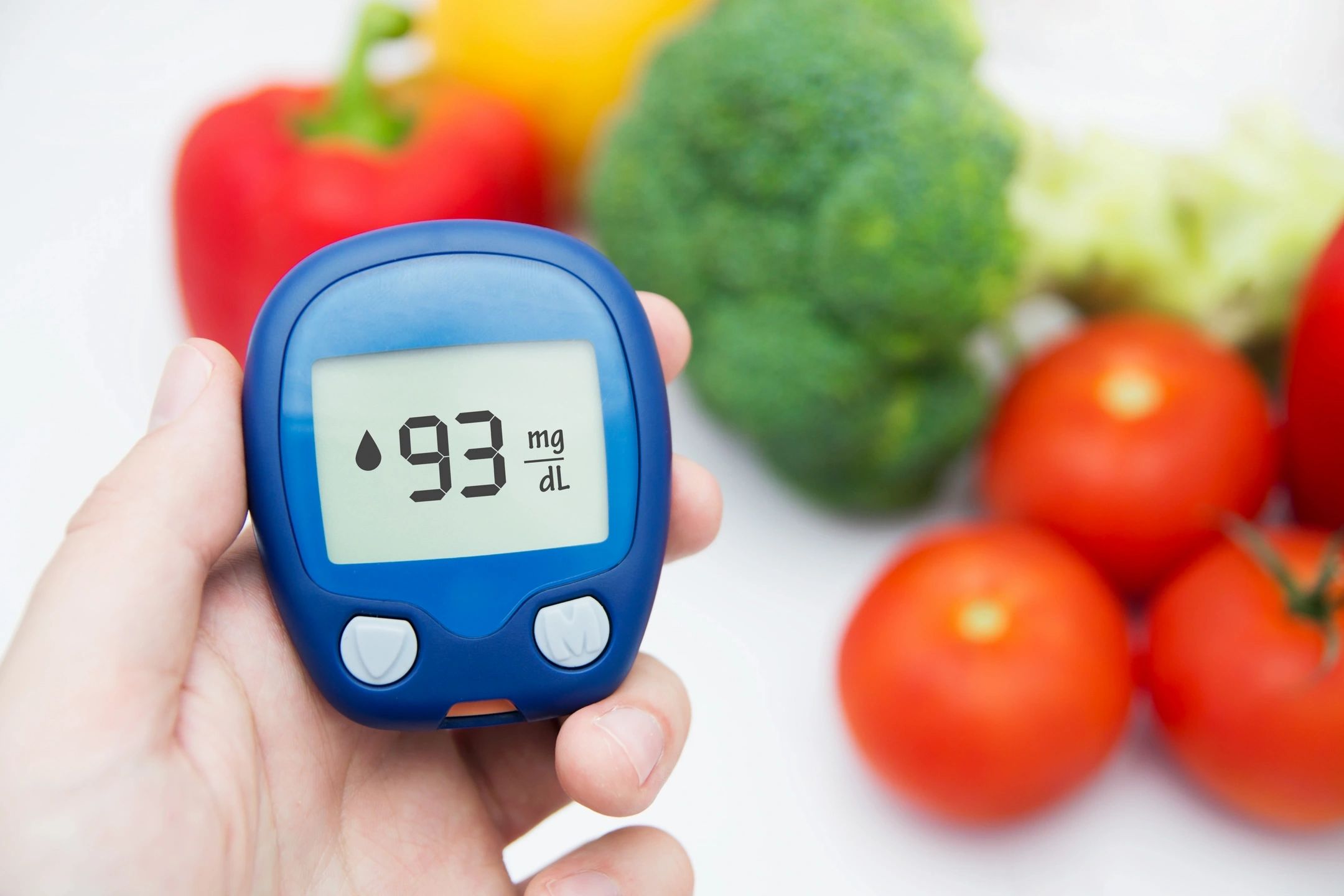For 1 in 10 Americans living with Type 2 diabetes, intermittent fasting might be a game-changer. This eating approach isn’t about what you eat, but when. Shifting food intake to certain hours, like noon to 8 p.m., has shown to be as effective as calorie counting for blood glucose control. Astonishingly, intermittent fasting may even lead to diabetes remission, according to a study published in the Journal of Clinical Endocrinology & Metabolism. Around 90% of participants reduced their diabetes medication, and 55% maintained remission for at least a year. But before you start fasting, be aware of potential risks like hypoglycemia and dehydration. Always consult with your healthcare provider before making any dietary changes.
Key Takeaways
-
Intermittent fasting is a promising method for managing blood sugar levels in people with Type 2 diabetes, with studies showing time-restricted eating can be as effective as counting calories.
-
A published study in the Journal of Clinical Endocrinology & Metabolism suggests intermittent fasting could lead to diabetes remission, with 55% of participants maintaining remission for at least a year.
-
There are potential risks of intermittent fasting for people with Type 2 diabetes, including hypoglycemia and dehydration. It’s recommended to consult with healthcare providers before starting an IF regimen.
-
Tips for safely integrating intermittent fasting into a diabetes management plan include consulting a doctor, monitoring blood sugar levels, staying hydrated, choosing an appropriate fasting window, and maintaining a balanced diet on non-fasting days.

How Intermittent Fasting Helps with Blood Sugar Control
Taking a closer look at blood sugar regulation, it becomes clear how intermittent fasting may be an ally for individuals with Type 2 diabetes. Intermittent fasting has shown promising results, akin to calorie counting, in reducing blood glucose levels. It’s remarkable how this method, particularly time-restricted eating, leads to similar decreases in hemoglobin A1C, a long-term blood sugar marker. The time-restricted plan seemed more manageable for participants compared to traditional calorie-restrictive diets.
Emerging research suggests that intermittent fasting might even trigger diabetes remission. The Journal of Clinical Endocrinology & Metabolism reported that nearly 90% of participants lessened their diabetes medication intake following an intermittent fasting regimen. More surprisingly, 55% of individuals experienced remission, maintaining it for at least one year. This finding refutes the conventional wisdom that remission is primarily possible in newly diagnosed patients.
Yet, like any health regimen, it’s not all sunshine and roses. Intermittent fasting can cause hypoglycemia, or low blood sugar, especially in people on diabetes medications. Healthcare providers should be consulted before starting an IF regimen to avoid severe hypoglycemia. Another concern is dehydration, as fasting can reduce fluid intake. Older individuals or those with other chronic conditions should exercise extra caution.
So, how can you safely incorporate intermittent fasting into your diabetes management plan? Always discuss it with your healthcare provider to customize the plan to your needs and adjust medications if required. Regularly monitor your blood sugar levels, especially during the initial stages of IF. Stay well-hydrated to ward off dehydration. Choose a fasting window that fits your lifestyle and is sustainable in the long run, like the 16:8 method. On non-fasting days, maintain a balanced diet to preserve the positive effects of fasting. Aim for a diet rich in fruits, vegetables, whole grains, lean meats, and healthy fats.
Following these guidelines can help you successfully merge intermittent fasting into your diabetes management routine, making it a potential ally in your battle against Type 2 diabetes.

The Science: Intermittent Fasting and Diabetes Remission
Diving into the scientific connection between intermittent fasting and diabetes remission, it appears that there’s more to it than meets the eye. When intermittent fasting becomes part of the daily routine, it seems to play an active role in helping people with Type 2 diabetes.
Research from Hunan Agricultural University published in the Journal of Clinical Endocrinology & Metabolism showed promising results. The study found that nearly 90% of participants reduced their diabetes medication intake after implementing an intermittent fasting approach. More impressively, 55% of those studied experienced diabetes remission, maintaining it for at least one year.
One eye-opening aspect of this study is that it proved beneficial even for individuals with a longer history of diabetes. This defies the traditional belief that remission is mainly achievable in newly diagnosed patients.
In another study published in JAMA Network Open, time-restricted eating – a form of intermittent fasting – showed efficacy in reducing blood glucose levels, tantamount to calorie counting. The participants in the intermittent fasting group found it easier to stick to compared with conventional calorie-restrictive diets.
But, like walking a tightrope, it’s all about balance. Intermittent fasting could lead to hypoglycemia, low blood sugar, particularly for those using diabetes medications. Plus, there’s a risk of dehydration from reduced fluid intake during fasting.
So, if you’re considering intermittent fasting for Type 2 diabetes, it’s not a wild goose chase. Yet, it’s critical to have a heart-to-heart with your healthcare provider before starting. They can help adjust your plan and medications, making the ride smoother and safer.
In short, intermittent fasting might not be a magic bullet, but it could be a secret sauce in managing diabetes. After all, every little bit helps!
Potential Dangers: Intermittent Fasting for People with Type 2 Diabetes
Delving into the potential hazards of intermittent fasting for individuals coping with type 2 diabetes, it’s clear that careful considerations need to be made. This eating approach, though proven beneficial, could lead to unintended complications. The primary concern is hypoglycemia or low blood sugar, which could be exacerbated by fasting, particularly for those taking medications that lower blood glucose.
Equally worrisome is the risk of dehydration. Fasting might lead to reduced fluid intake, making dehydration a real possibility. Older adults and those with other chronic conditions need to be particularly cautious.
So, how can you navigate these potential pitfalls? Consider these five tips:
-
Talk to Your Healthcare Provider: Prior to embarking on an intermittent fasting program, it’s paramount to discuss it with your doctor. They can guide you in modifying the plan according to your needs and adjust your medications if necessary.
-
Keep an Eye on Your Blood Sugar: Hypoglycemia can be sneaky, so make sure to frequently check your blood glucose levels, particularly when starting your fasting regimen.
-
Don’t Skimp on Fluids: Drink plenty of water and stay well-hydrated, even during your fasting window.
-
Choose a Manageable Fasting Window: Opt for a time-restricted eating schedule that suits your lifestyle and is easy to uphold. The 16:8 method, where you fast for 16 hours and eat within an 8-hour window, is a popular choice.
-
Eat Well on Non-Fasting Days: On days when you’re not fasting, focus on a balanced diet to keep the momentum of your fasting benefits going.
With these guidelines in mind, you can safely incorporate intermittent fasting into your diabetes management plan. Remember, it’s not a sprint, it’s a marathon. Pace yourself and listen to your body.
5 Tips for Safely Incorporating Intermittent Fasting in Your Diabetes Management Plan
To safely engage in the practice of intermittent fasting as a component of your Type 2 diabetes management, there are a few golden rules you should keep in mind. This strategy can be a game changer for managing blood sugar levels, but it’s not without its pitfalls. Ready to dig in? Let’s go!
Tip #1: Make Your Doctor Your Ally Before you jump on the intermittent fasting bandwagon, it’s wise to have a chat with your healthcare provider. They can guide you on how to adjust your diabetes medications, if needed, during your fasting period.
Tip #2: Keep a Close Eye on Your Blood Sugar Monitoring your blood sugar levels is a must, especially when you’re just getting started with intermittent fasting. This keeps hypoglycemia at bay and helps you understand how fasting impacts your body.
Tip #3: Water is Your Best Friend Staying hydrated is non-negotiable during your fasting window. This doesn’t mean guzzling gallons of water, but just enough to keep dehydration at bay.
Tip #4: Choose a Fasting Window That Works For You There are different ways to do intermittent fasting. The popular 16:8 method might work for some, but not for all. Choose what aligns best with your lifestyle and is sustainable for you.
Tip #5: Don’t Forget Nutrition on Non-Fasting Days When you’re not fasting, you need to eat right. Don’t undo the benefits of your fast by treating non-fasting days as a free pass to gorge on junk. Instead, aim for a diet rich in veggies, fruits, lean meats, and healthy fats.
Including these tips in your game plan can help you weave intermittent fasting into your diabetes management strategy safely and effectively. For more insights into different types of intermittent fasting, visit our guide on intermittent fasting.
|
Tip |
Description |
Benefit |
Caution |
|---|---|---|---|
|
Doctor Consultation |
Discuss IF with healthcare provider |
Tailors IF to individual needs |
May require medication adjustment |
|
Blood Sugar Monitoring |
Regularly check blood sugar levels |
Prevents hypoglycemia |
Crucial in initial phases of IF |
|
Hydration |
Maintain fluid intake |
Prevents dehydration |
Reduced food consumption may affect fluid intake |
|
Suitable Fasting Window |
Select a practical fasting schedule |
Ensures long-term sustainability |
Finding the right balance is critical |
|
Balanced Diet on Non-Fasting Days |
Maintain a healthy diet on non-fasting days |
Preserves fasting benefits |
Avoid overindulging or unhealthy food choices |

Subscribe To Our VIP Newsletter
Join our VIP mailing list to receive additional content that goes even deeper into the latest tips to ensure you and your families health, fitness and wellness.























